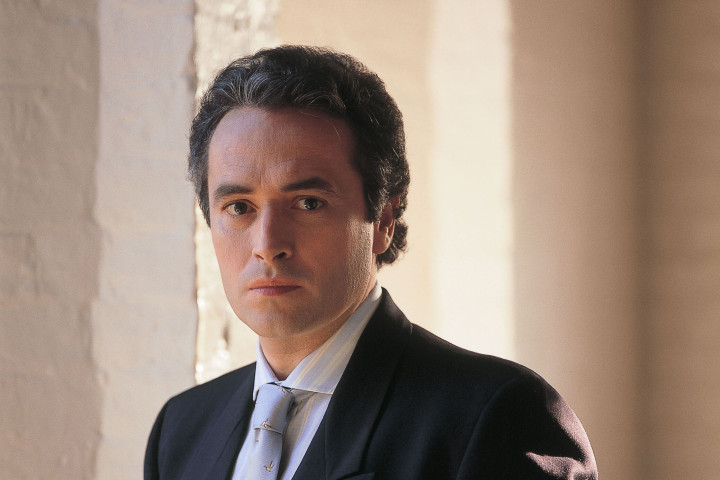José Carreras
This actually charming version (with new text: "Ernie's unhappy") was recorded when Carreras appeared on the popular TV puppet show, "Sesame Street".
I have never cared very much for José Carreras. He had a nice voice, but so did many others before him. He always had problems with his top. He embarked on a career of singing roles not suited for his lyrical voice (Radamès, Don Carlo, Manrico, Stiffelio, Andrea Chénier, Riccardo, Éléazar, Alvaro etc). I heard him in Ballo in maschera, after his disastrous appearances in Paris in the same role. He strained terribly and was off pitch. I heard him as Manrico, where his voice went to pieces during the performance. I heard him as Andrea Chénier, a role where he completely lacked the required squillo, and so on. Recording engineers did a good job on his voice. He was getting nowhere when he was diagnosed with leukemia. After, fortunately for him, recovering from the disease, he seemed to have a regain of popularity. This was especially noticeable in the circus exhibitions of the Three Tenors. In spite of the help of the microphone, he could not hide during those concerts that he was the worst of the three and gone for good.
A friend pointedly told me:
The friend that Mr. Nouvion mentioned was nobody else than baritone and voice teacher Joseph Shore.
Carreras (birth name: Josep Maria Carreras i Coll) made his debut in Barcelona at the Teatre del Liceu
in 1970 as Flavio in Norma, followed by Gennaro in Lucrezia Borgia. The soprano in both performances was
Montserrat Caballé, who took the young tenor under her wing and helped him greatly. After his 1972 debut at the New
York City Opera, he sang at literally every important stage in the world into the 21st century, interrupted by his 1987
leukemia affection, from which he recovered within about one year. That he later, after quitting the opera stage, would
sing on and on in concert was fine in spite of his unspeakable vocal condition, because all those concerts were for the
benefit of his foundation for scientific research on leukemia:
he was very much aware that he was only still alive thanks to his wealth, and that without being able to pay the best
doctors in the world, he would certainly have died.
Of the Three Tenors, Carreras had the largest voice by far, and the poorest technique. In terms of
musicality, style and interpretation, none of the three achieved much to write home about, but Carreras was a real bore,
and that's also true for his stage acting. Of course, he was greatly helped by his exceptionally good looks, but he would
typically stand in front of the prompt box as if someone had bolt him down, and make gestures as if he carried a watermelon
under each arm; as soon as he began to stand up on tiptoes, you knew that he was struggling with the top notes. Only as Don
José (a role that didn't suit him the slightest bit, vocally), he was able to deliver an actually thrilling account
of the finale; he didn't really sing it (at that point of the opera, he was much too exhausted for that), but he arrived at
kind of a declamation that managed to render the situation quite effectively.
He was also by far the nicest, not only of the Three, but of all the famous tenors of his generation: kind, modest, no airs
and graces, never a nasty remark on anybody or anything.
One single time, I even heard him sing a role well: Gabriele Adorno. I have no idea whether it was the role or just
that specific evening, but on that occasion, he sang on a level far above what could be reasonably expected from him.
I would like to thank Thomas Silverbörg for the recordings (Turandot, Devereux, Pietra del Paragone, Chénier). | |